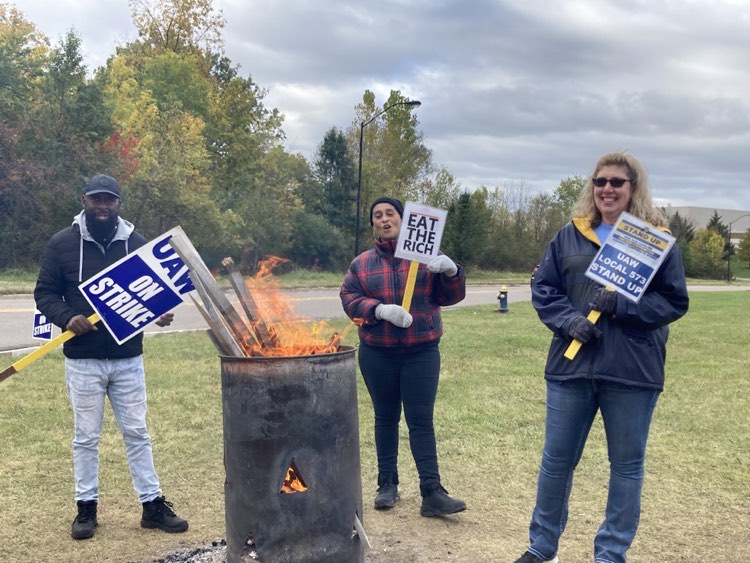Prior to that Wednesday evening, Fain was announcing every Friday which plants or warehouses, if any, would be joining the strike. Now there is an added element of surprise, making it even harder for Big Three bosses to plan production. Workers at any facility could be asked to “stand up and walk out” at a moment’s notice.
Solidarity with UAW strikers continues to grow. A recent Associated Press poll showed only 9% of respondents had sympathy for the auto companies. Autoworkers from Italy, England and Brazil recently traveled to the U.S. to walk the picket lines with their U.S. counterparts. Restaurants and bakeries are giving strikers free food.
While the three companies have upped their offers in regards to pay raises and other contract terms, the two antagonistic class groupings have not reached agreement on key issues, such as pensions and health insurance for lower seniority workers when they retire, and making everyone a permanent employee after 90 days. GM, Ford and Stellantis want to maintain the divisive, multi-tier pay and benefit structure, paying future workers less.
“We’re not messing around,” Fain declared. “Why is it when they kill thousands of jobs it’s business as usual, but when working-class people stand up and ask for more it’s a crisis? […] The working class in this country is fed up with being bullied by rich corporations and the wealthy. The working class in this country is sticking together.”


